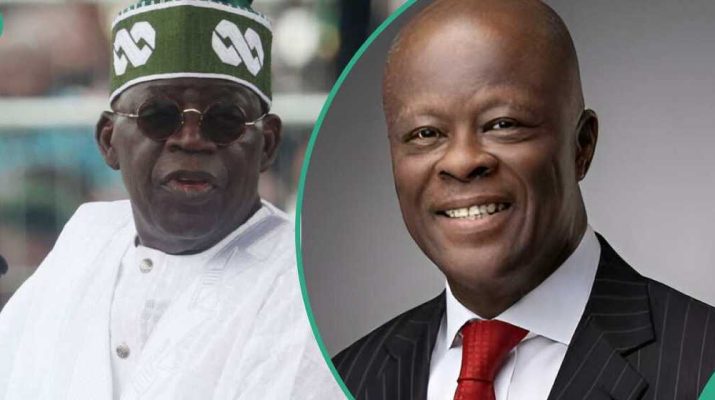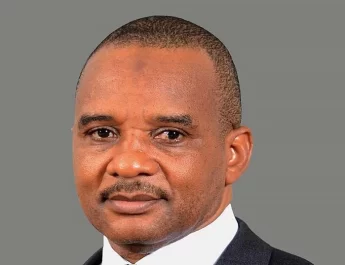In spite of the criticisms that trailed President Bola Ahmed Tinubu’s tax reforms, the Nigerian Senate and House of Representatives have passed four tax bills they consider pertinent to the advancement of the country in what they termed equitable and financial tax reforms expected to balance the challenges and hidden benefits under the present administration
By Edu Abade
After several months of back and forth, arguments for and against proposed tax reforms, President Bola Tinubu finally signed four new tax bills recently passed by the National Assembly into law on Thursday, June 26, 2025.
The President described the new laws as pivotal to the success of the administration’s reforms and the country’s prosperity.
The bills include the Nigeria Tax Bill (Ease of Doing Business), which aims to consolidate Nigeria’s fragmented tax laws into a harmonized statute; the Nigeria Tax Administration Bill, which will establish a uniform legal and operational framework for tax administration in federal, state and local governments areas across the country.

Others are the Nigeria Revenue Service (Establishment) Bill, which repeals the current Federal Inland Revenue Service Act and creates a more autonomous and performance-driven national revenue agency-the Nigeria Revenue Service (NRS); and the Joint Revenue Board (Establishment) Bill, which provides for a formal governance structure to facilitate cooperation between revenue authorities at all levels of government.
At the signing ceremony at the State House, President Tinubu said that the occasion presented a new lease of life to every Nigerian and future generation.
Responding in a statement, Special Adviser to the President on Information and Strategy, Bayo Onanuga, quoted the President as saying, “What we did a few minutes ago is the way forward for our country’s prosperity. Leadership must help people take off, lead the way and navigate every turn and twist. We must help them reach their destination. That is what we are doing.
“We are in transit; we have changed the roads, we have changed some of the misgivings, we have opened the doors to a new economy, business opportunities. We have shown the world that Nigeria is ready and open for business.”
President Tinubu also commended the leadership and members of the National Assembly for passing the bills despite initial misunderstandings.
“It was initially difficult, but not all roads will be easy in nation-building. What you have provided is leadership and courage in the face of mounting disputes. Nowhere in the world would tax reforms be easy,” he said.
Chairman of the Presidential Committee on Fiscal Policy and Tax Reforms, Taiwo Oyedele, commended the President for his leadership acumen in enabling the passage of the bills.
He thanked the President for all the support, without necessarily teleguiding the committee, and only asked necessary questions.
“History will remember you for good for transforming our country because you went for a fundamental reform.”
Chairman, Federal Inland Revenue Service (FIRS), Dr. Zacch Adedeji, described the passage of the bills, which implementation begins in 2026 as a dream come true, while President of the Senate, God’swill Akpabio, eulogised President Tinubu for his leadership qualities.
“We have always known that you are a thinker, that you are intellectually sound, and that you care for your country. You campaigned based on change for the country. This law would last for generations to come,” he said.
Akpabio congratulated members of the National Assembly and other stakeholders who made the passage of the tax bills possible.
Tinubu further assured Nigerians that the new Nigerian tax regime will significantly transform tax administration in the country, leading to increased revenue generation, improved business environment and a boost in domestic and foreign investments.
“For too long, our tax system has been a patchwork-complex, inequitable, and burdensome,” President Tinubu wrote on his verified X handle: @officialABAT. “That era ends today. We are laying the foundation for a tax regime that is fair, transparent, and fit for a modern, ambitious Nigeria.”
Adedeji, who disclosed that the new tax regime will begin on January 1, 2026, said, “It takes time for all the stakeholders, participants, operators and the regulator to change the entire system.
So, with the magnanimity of the National Assembly, the President assented to the bills. So, the effective date will be January 1, 2026. We have six full months for sensitization and planning towards full implementation of the law. This is also considering the fiscal year of the government, because when you have this kind of change, it’s not what you do in the media.”

However, Nigerians have expressed concern that the new tax law due to controversies around Nigeria’s actual population figures. While some believe that the country’s population hovers between 200 and 220 million, others argue that since a census has not been conducted in over a decade, it is difficult to determine the country’s true population status.
But the real concerns arise from the fact that since the law makes provision for a 20 percent sharing formula of Value Added Tax (VAT) based on states’ population, the North, which had been generally touted to be more populated than the south, would benefit more from VAT revenues when the law takes effect from January 2026.
What Nigerians Need To Know:
FIRS Renamed: The Federal Inland Revenue Service (FIRS) has been renamed and will be known as the Nigeria Revenue Service (NRS).
Unified Revenue Collection: The law will empower the NRS to handle revenue collections previously managed by agencies like the Nigeria Customs Service (NCS), Nigerian Upstream Petroleum Regulatory Commission (NUPRC), the Nigerian Ports Authority (NPA) and the Nigerian Maritime Administration and Safety Agency (NIMASA).
Low-Income Relief: Under the new law workers earning ₦800,000 or less annually are now exempted from income tax.
High-Income Tax: According to the new law, individuals earning N50 million annually will now pay a 25 percent personal income tax.
Small Business Exemption: Small business owners are also fully exempt from paying income tax under the new law.
Corporate Tax Cut: Starting from 2026, company income tax for medium and large firms will be reduced from 30 percent to 25 percent.
Value Added Tax (VAT) Exemptions on Essentials: The new law has removed VAT charges on essential items like food, medical services, pharmaceuticals, school fees and electricity bills.
No Tax Hike: VAT remains at 7.5 percent, and corporate income tax stays at 30 percent-there has been no increase.
New Development Levy: A 2 percent–4 percent Development Levy will now fund critical national institutions like the Nigerian Education Loan Fund (NELFUND), Tertiary Education Trust Fund (TETFund), National Information Technology Development Agency (NITDA) and the National Agency for Science and Engineering Infrastructure (NASENI).
VAT Sharing Formula Among the Three Tiers of Government: 10 percent to Federal Government, 55 percent to States; 35 percent to local government areas.
VAT Sharing Formula for States: 50 percent will be based on equality; 30 percent based on generation (i.e where VAT was derived) and 20 percent based on states’ population.




